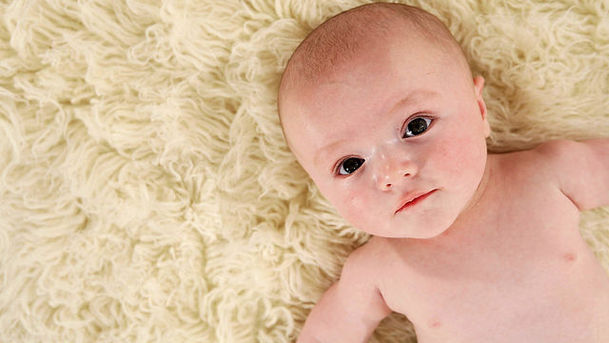Growing Babies - Brainpower

Laverne Antrobus delves into the extraordinary world of foetal and infant neuropsychology as she tries to explain the curiosities of baby cognition. Babies just hours old can make complex inferences about people and objects, music and language, and even the principles of geometry and geography. Antrobus asks how babies perceive the world around them, what they know and how they learn to process knowledge. She debates whether babies learn everything from experience or whether knowledge can be hardwired into their brilliant brains, an idea first postulated by psychologist Elisabeth Spelke when she unveiled theories about core knowledge. Antrobus traces infant psychology back to some of the earliest theories and she meets researchers at Birkbeck College's Babylab who use hi-tech brain scanning equipment to delve deep inside the minds of babies. The theories here are slightly different. Denis Mareschal believes biased learning - babies' remarkable abilities to home in on key sources of information - is the key to intelligence. The invention of the revolutionary 3D ultrasound has led to an unprecedented glut of revelations about foetal behaviour. Soon after the nervous system forms, the foetus begins ferociously practising for life after birth. Stimuli like sound and taste permeate the sanctity of the womb, shaping the character and personality of the growing foetus. Dr Heidi Als's studies with premature babies reveal how vital the third trimester of pregnancy is for neurological development. While the brain is still learning to filter out unnecessary sensory stimulation, it relies on the womb to prevent it becoming overloaded. Premature babies don't have this luxury and their brains can often shut down when confronted by too many sensory stimuli.